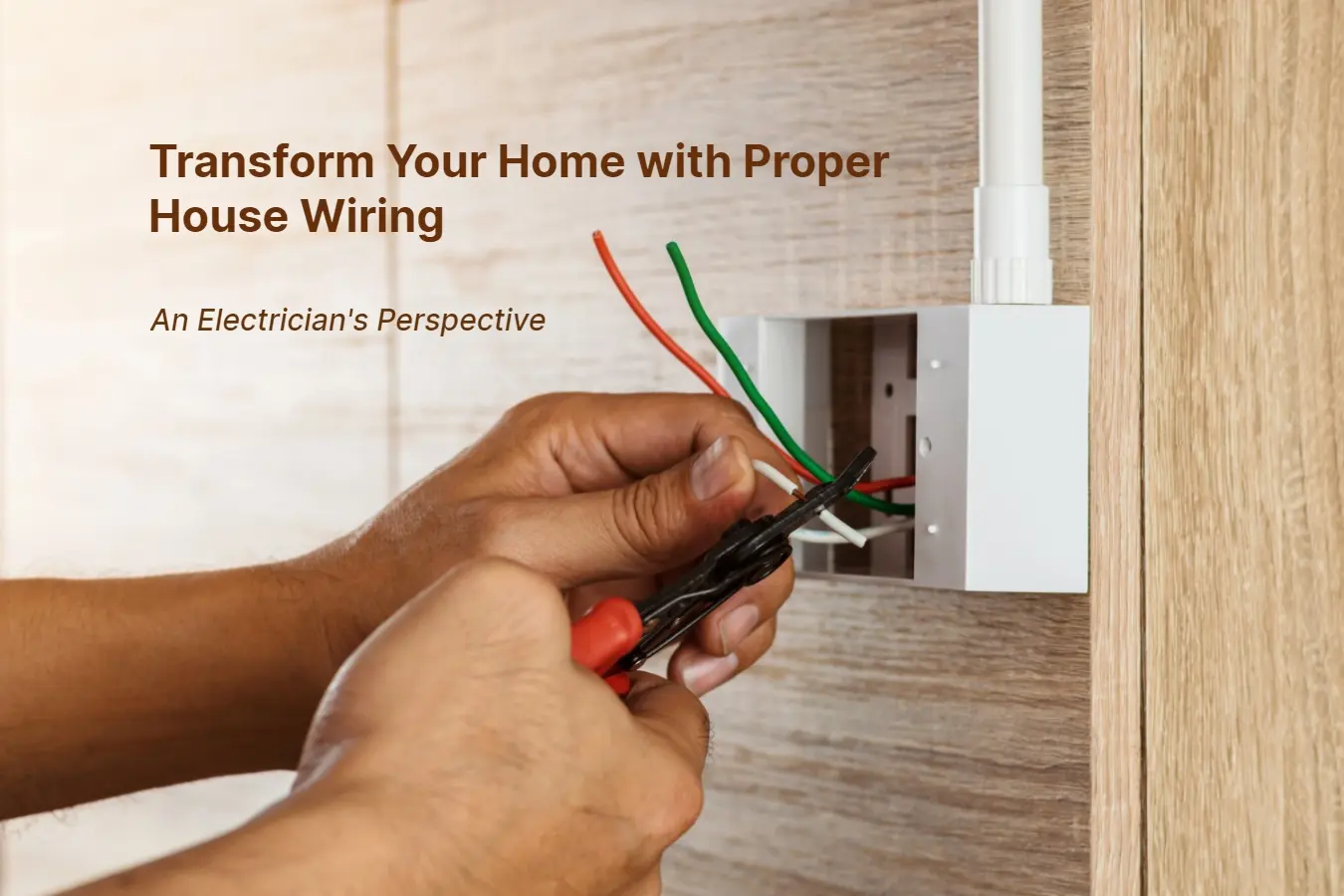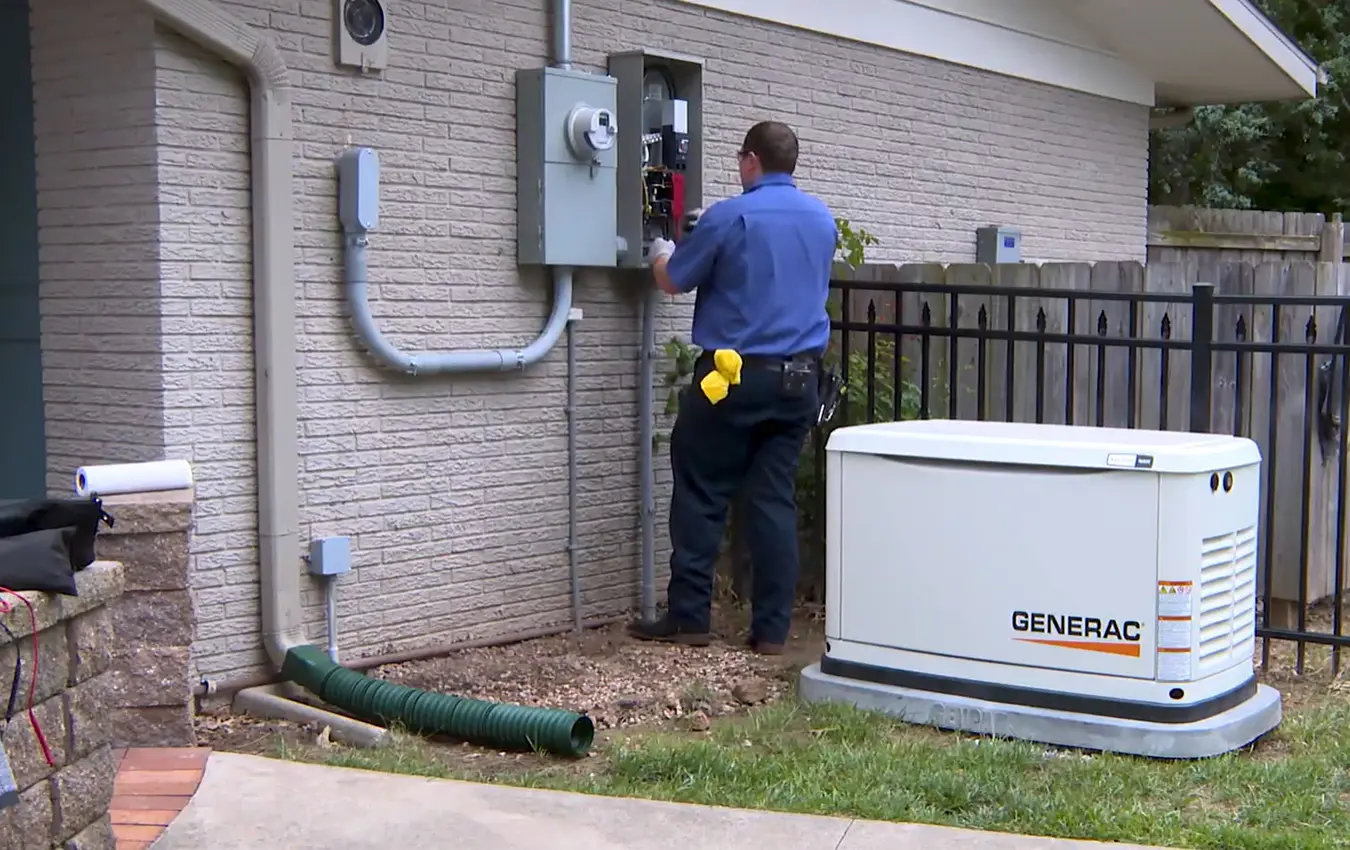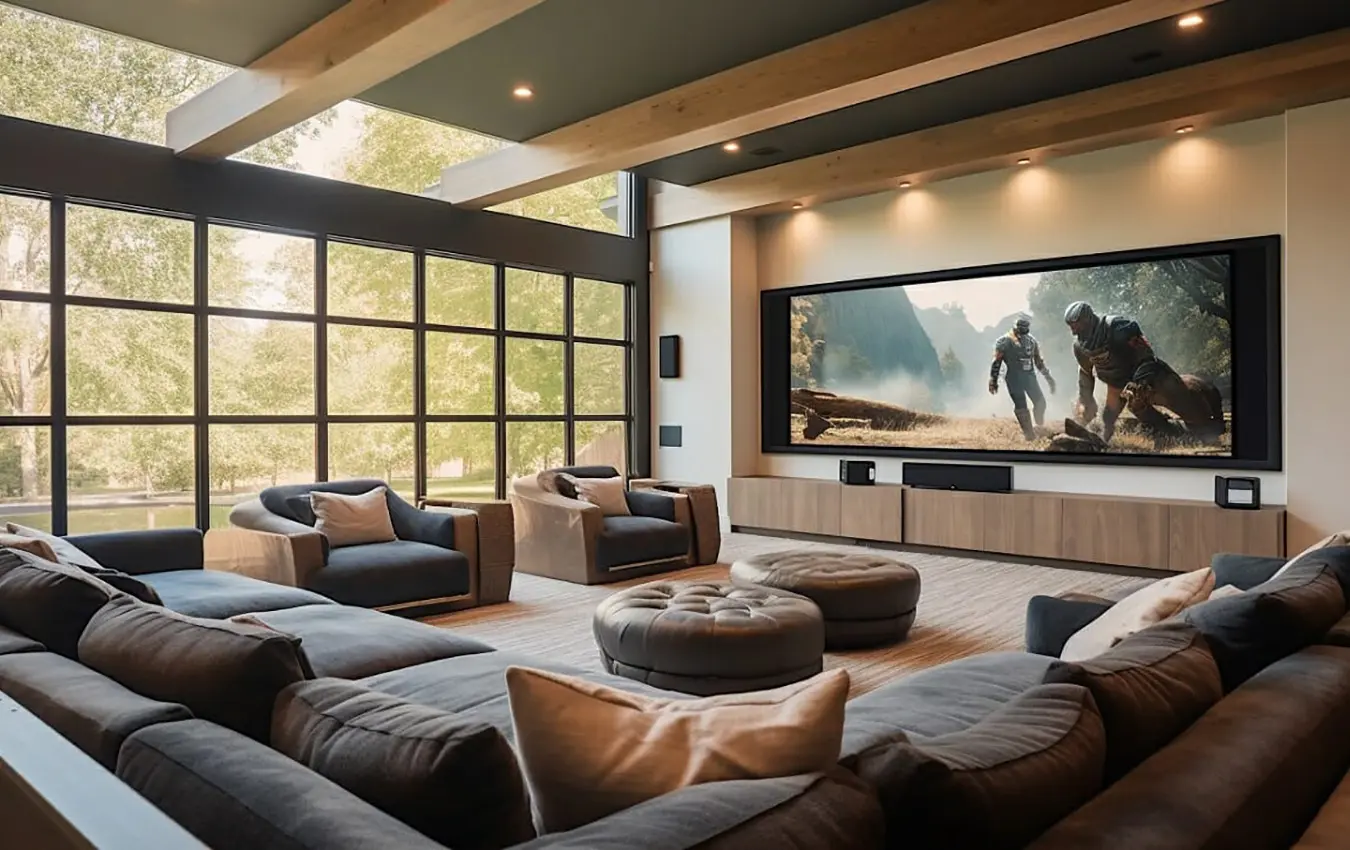Transforming your home into a safe and efficient living space starts with proper house wiring. As an electrician, I’ve witnessed the impact of quality wiring on the functionality and overall atmosphere of a house. From ensuring reliable power supply to preventing potential hazards, house wiring plays a crucial role in every aspect of your home.
In this article, we will delve into the importance of proper house wiring from an electrician’s perspective. We will explore the key considerations involved in wiring your home, including the types of wiring systems available, the importance of hiring a professional electrician, and the benefits you can reap from investing in high-quality wiring.
Whether you are constructing a new home or renovating your existing one, understanding the fundamentals of proper house wiring is essential. Not only does it provide a solid foundation for electrical appliances, lighting, and general power supply, but it also ensures the safety of your loved ones.
Join me as we embark on a journey to transform your home through proper house wiring. Let’s take the first step towards creating a secure and efficient living environment for you and your family
The Importance of Proper House Wiring
Proper house wiring is more than just a matter of convenience; it is a matter of safety. Faulty wiring can lead to electrical shocks, short circuits, and even fires. By investing in proper house wiring, you can protect your home and loved ones from these potential hazards. A well-wired home ensures a reliable power supply, prevents electrical accidents, and enhances the overall functionality of your electrical system.
Conduct a comprehensive electrical wiring inspection of your home to protect your home and your family from accidents and fires.
Premier Electrical Services will quickly inspect your home’s electrical wiring, provide quality troubleshooting, and resolve electrical panel issues. Use the phone number 954-900-1696 to call us or write to us about what is bothering you!
Understanding Electrical Systems and Components
To fully appreciate the importance of proper house wiring, it is essential to understand the various electrical systems and components involved. A typical house wiring system consists of a main electrical panel, circuit breakers, wiring, outlets, switches, and various electrical appliances and fixtures. Each component plays a crucial role in ensuring the safe and efficient distribution of electricity throughout your home.
The main electrical panel serves as the central hub for your home’s electrical system. It receives electricity from the utility company and distributes it to the various circuits in your home. Circuit breakers are designed to protect the electrical system from overload or short circuits by automatically shutting off the power when necessary. Outlets and switches provide access to electricity, allowing you to power your appliances, devices, and lighting fixtures.
Signs of Faulty House Wiring
Identifying signs of faulty house wiring is crucial to maintaining a safe living environment. Some common indicators include flickering lights, frequently blown fuses or tripped circuit breakers, burning smells, and discolored outlets. These signs may indicate loose connections, outdated wiring, or other electrical issues that require immediate attention from a professional electrician.
If you notice any of these signs or have concerns about the condition of your house wiring, it is important to address them promptly. Ignoring potential wiring problems can lead to more severe issues down the line, risking the safety of your home and family.
Benefits of Professional House Wiring
While it may be tempting to attempt DIY house wiring, hiring a professional electrician is highly recommended. Professional electricians possess the knowledge, skills, and experience necessary to ensure the proper installation and maintenance of your house wiring. They are familiar with local electrical codes and regulations, ensuring that your wiring meets the required safety standards.
Investing in professional house wiring offers numerous benefits. Firstly, it eliminates the risk of faulty wiring, reducing the chances of electrical accidents and fires. Secondly, professional electricians can design and install a wiring system that is tailored to your specific needs, ensuring optimal functionality and efficiency. Lastly, hiring a professional guarantees a higher level of expertise and workmanship, providing you with peace of mind.
Hiring a Qualified Electrician for House Wiring
When it comes to house wiring, hiring a qualified electrician is non-negotiable. A qualified electrician possesses the necessary certifications, licenses, and insurance to perform electrical work safely and legally. They have undergone extensive training and have the knowledge and skills required to handle complex electrical systems.
When selecting an electrician, it is essential to do your due diligence. Look for electricians with a proven track record, positive reviews, and a solid reputation in the industry. Additionally, ensure that they provide a detailed estimate and timeline for the project. By choosing a qualified electrician, you are investing in the long-term safety and functionality of your home.
Steps Involved in House Wiring Installation
House wiring installation is a complex process that requires careful planning and execution. While every project is unique, there are some general steps involved in the installation process. These steps include:
1. Planning and design
A professional electrician will assess your electrical needs and create a wiring plan that meets your specific requirements. This step involves determining the number of circuits, outlets, and switches needed, as well as the location of the main electrical panel.
2. Obtaining permits
Before starting the installation, your electrician will obtain the necessary permits from the local authorities. This ensures that the work is performed in compliance with the applicable building codes and regulations.
3. Wiring installation
The electrician will begin by installing the main electrical panel and circuit breakers. From there, they will run the wiring through the walls, ceiling, and floors, connecting it to the outlets, switches, and electrical fixtures as per the wiring plan.
4. Testing and inspection
Once the wiring is installed, the electrician will conduct thorough testing to ensure that everything is functioning properly. They will also schedule an inspection by the local authorities to verify compliance with the electrical codes.
5. Finalizing the installation
After passing the inspection, the electrician will make any necessary adjustments and finalize the installation. This includes labeling the circuit breakers, organizing the wiring, and ensuring that all connections are secure.
Common Mistakes to Avoid in House Wiring
While professional electricians strive for perfection, there are some common mistakes that can occur during house wiring. These mistakes can compromise the safety and functionality of your electrical system. Some common mistakes to avoid include:
Overloading circuits
Overloading circuits by connecting too many devices or appliances to a single circuit can lead to overheating and potential fire hazards. It is important to distribute the load evenly across multiple circuits.
Incorrect wire sizing
Using wires of the incorrect size can result in overheating and damage to the wiring system. It is essential to use the appropriate wire gauge for each circuit, considering factors such as the length of the wire and the load it will carry.
Poor grounding
Proper grounding is crucial for electrical safety. Failing to install proper grounding can result in electrical shocks and damage to electrical devices. It is important to ensure that all electrical outlets and fixtures are properly grounded.
Inadequate insulation
Insufficient insulation can lead to electrical shorts and potential fire hazards. It is important to use high-quality insulation materials and ensure that all connections are properly insulated.
By being aware of these common mistakes and working with a professional electrician, you can avoid potential issues and ensure the longevity and safety of your house wiring.
Upgrading Your Home’s Electrical System
If you have an older home, it may be necessary to upgrade your electrical system to meet the demands of modern technology and appliances. Upgrading your home’s electrical system not only ensures a safer and more efficient living environment but also adds value to your property.
When considering an electrical system upgrade it is crucial to consult a professional electrician. They will assess the current electrical system, identify any deficiencies, and recommend the necessary upgrades. This may include replacing outdated wiring, increasing the capacity of the electrical panel, and installing additional circuits to accommodate new electrical loads.
(h2) Safety Tips for Maintaining House Wiring
Proper maintenance of your house wiring is essential to ensure its longevity and safety. Here are some safety tips to keep in mind:
Regular inspections
Schedule regular inspections by a professional electrician to identify any potential issues or signs of wear and tear. They can also perform routine maintenance tasks to keep your house wiring in optimal condition.
Avoid DIY repairs
Attempting to repair or modify your house wiring without the necessary knowledge and experience can be dangerous. Always consult a professional electrician for any electrical repairs or modifications.
Use surge protectors
Install surge protectors to protect your electrical devices from power surges. Surge protectors help prevent damage to sensitive electronics and can extend their lifespan.
Practice electrical safety
Educate yourself and your family members about basic electrical safety practices, such as avoiding overloading circuits, keeping electrical cords away from water sources, and using ground fault circuit interrupters (GFCIs) in areas prone to moisture.
By following these safety tips, you can minimize the risk of electrical accidents and ensure the longevity of your house wiring.
Conclusion: The Value of Investing in Proper House Wiring
Investing in proper house wiring is not just about aesthetics or convenience; it is about ensuring the safety and efficiency of your home. From reliable power supply to preventing electrical hazards, proper house wiring is the foundation of a secure and functional living environment.
By understanding the importance of proper house wiring, hiring a qualified electrician, and following safety guidelines, you can transform your home into a safe and efficient living space. Don’t compromise on the quality of your house wiring—invest in professional installation and maintenance to safeguard your home and loved ones.
Remember, your home is more than just a building; it is a sanctuary for you and your family. Start the journey towards transforming your home with proper house wiring today. Premier Electrical Services will quickly and efficiently repair home wiring problems or electrical panel repairs. Give us a call at 954-900-1696 today and let us know what electrical problem you’re experiencing!
Check out the latest news:
- 10 Electrical Hazards of DIY Generator Installation
- Transform Your Living Space: The Benefits of Home Theater Systems
- How to Choose the Right Lighting Fixtures for Your Home or Business
- Don’t Be Left in the Dark: Why Homeowners Should Consider Premier Electrical Services for Backup Generator Installation
- Residential Electrical Wiring: Why You Need a Professional Electrician






